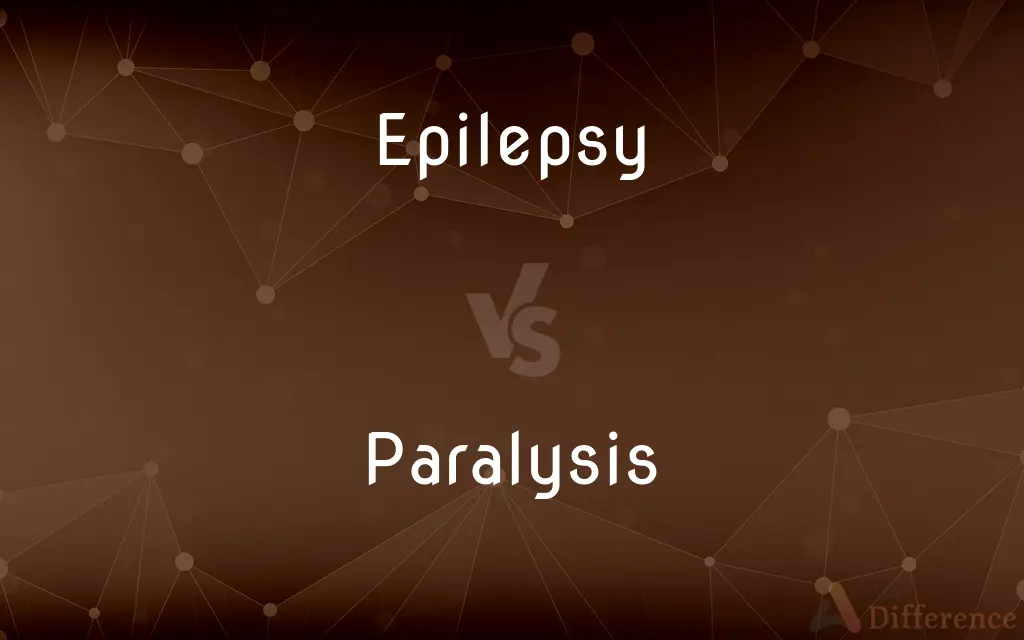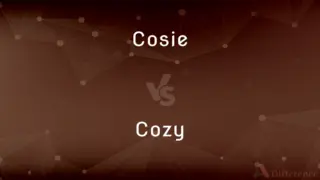Epilepsy vs. Paralysis — What's the Difference?

Difference Between Epilepsy and Paralysis
ADVERTISEMENT
Compare with Definitions
Epilepsy
Epilepsy is a group of neurological disorders characterized by recurrent epileptic seizures. Epileptic seizures are episodes that can vary from brief and nearly undetectable periods to long periods of vigorous shaking due to abnormal electrical activity in the brain.
Paralysis
Paralysis (also known as plegia) is a loss of motor function in one or more muscles. Paralysis can be accompanied by a loss of feeling (sensory loss) in the affected area if there is sensory damage as well as motor.
Epilepsy
Any of various neurological disorders marked by sudden recurring attacks of motor, sensory, or cognitive dysfunction, with or without convulsive seizures or loss of consciousness. Also called seizure disorder.
Paralysis
Loss or impairment of the ability to move a body part, usually as a result of damage to its nerve supply.
Epilepsy
(pathology) A medical condition in which the sufferer experiences seizures (or convulsions) and blackouts.
ADVERTISEMENT
Paralysis
Loss of sensation over a region of the body.
Epilepsy
The "falling sickness," so called because the patient falls suddenly to the ground; a disease characterized by paroxysms (or fits) occurring at interval and attended by sudden loss of consciousness, and convulsive motions of the muscles.
Paralysis
Inability to move or function; total stoppage or severe impairment of activity
Fear that led to national paralysis.
Epilepsy
A disorder of the central nervous system characterized by loss of consciousness and convulsions
Paralysis
(pathology) The complete loss of voluntary control of part of a person's body, such as one or more limbs.
Paralysis
A state of being unable to act.
The government has been in a paralysis since it lost its majority in the parliament.
Paralysis
Abolition of function, whether complete or partial; esp., the loss of the power of voluntary motion, with or without that of sensation, in any part of the body; palsy. See Hemiplegia, and Paraplegia. Also used figuratively; as, paralysis of the will.
Mischievous practices arising out of the paralysis of the powers of ownership.
Paralysis
Loss of the ability to move a body part
Share Your Discovery

Previous Comparison
Cosie vs. Cozy
Next Comparison
Lobster vs. Scampi














































